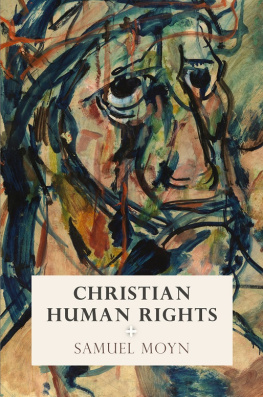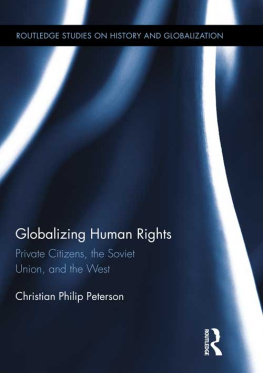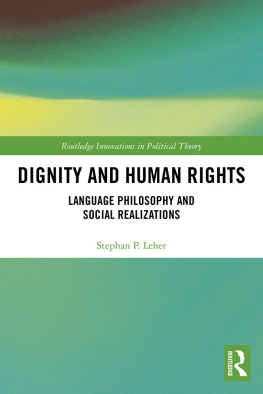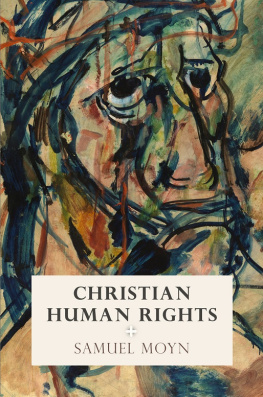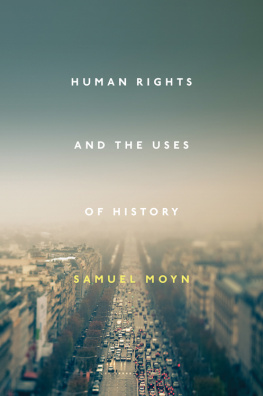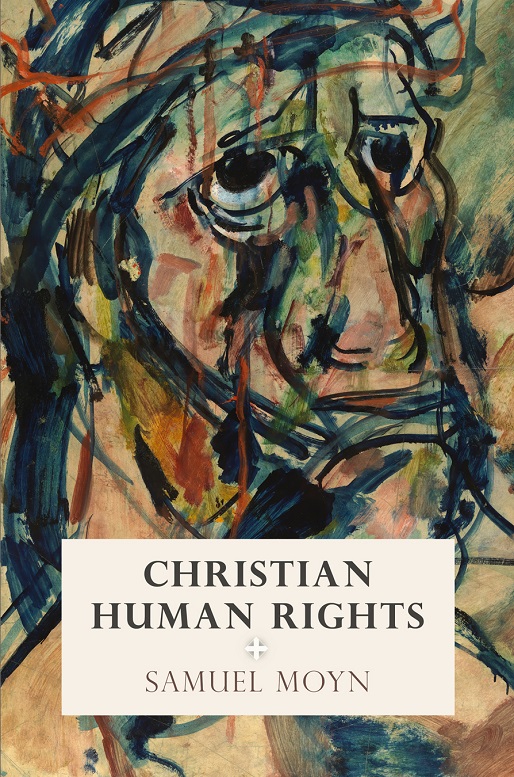Publication of this volume was aided by a generous grant from the Andrew W. Mellon Foundation.
All rights reserved. Except for brief quotations used for purposes of review or scholarly citation, none of this book may be reproduced in any form by any means without written permission from the publisher.
[T]o reaffirm faith in fundamental human rights, in the dignity and worth of the human person...
Christmas Day, 1942. The outcome of World War II was undecided. A month before, the tide at Stalingrad had turned against the Germans; just two days before, General Erich von Manstein had abandoned his efforts to relieve the Wehrmachts doomed Sixth Army. Still, there was no telling that the extraordinary German strength in the war on display so far would now ebb quickly. Nonetheless, the Roman Catholic pontiff, Pius XII, had something new to say.
The Americans had formally entered the war a year before, but the Allies would not reach mainland Italy for another nine months, or make it to Rome for a year and a half. The pope felt himself in dire straits. His relationship with Benito Mussolini had long since soured, and he was a prisoner in his own tiny Roman domain. As for the Jews, the worst victims of the conflict, millions were dead already; the victims at Babi Yar had lain in their ravine for more than a year; Treblinka, the most infernal death camp, had begun killing operations six months before and much of its grim work was already complete.
Officially, of course, the papacy and its leader were neutral in the war and did not play politics. Many of Piuss flock, however, were to be found on all sides of the war. To the extent recent observers have revisited Piuss Christmas message, it has been to argue about whether he could or should have said more about the Holocaust than he did. But the real interest in the message is what the pope was for, not what he was against. In this fight, Christianity stood for values, and in the perspective of world history, Pius XII had some new ones.
On that day, the appeal to reaffirm faith in the dignity of the human person, and in the rights that follow from that dignity, reached unprecedented heights of public visibility. The very first of the five peace points that Pius XII offered that day ran as follows:
Dignity of the Human Person. He who would have the Star of Peace shine out and stand over society should cooperate, for his part, in giving back to the human person the dignity given to it by God from the very beginning.... He should uphold respect for and the practical realization of... fundamental personal rights.... The cure of this situation becomes feasible when we awaken again the consciousness of a juridical order resting on the supreme dominion of God, and safeguarded from all human whims; a consciousness of an order which stretches forth its arm, in protection or punishment, over the unforgettable rights of man and protects them against the attacks of every human power.
It was a critical turning point, one that has defined history since, if not exactly in ways that Pius XII intended.
People now treat such affirmations, and especially the notion that human dignity provides the foundation for universal human rights, as a set of conventional and enduring truths. Yet it was all rather new at the time. The Roman Catholic Church had previously rejected the hitherto secular and liberal language of human rights. But now the pope turned to it, making human dignity its new basis. Around the same time, ecumenical formations of transatlantic Protestant elites proclaimed human rights to be the key to future world order. The communion between human rights and Christianity was therefore a novel and fateful departure in the history of political discourse.
Undoubtedly, the popes first peace point was the supreme, influential, and most publicly prominent invocation of human dignity during World War II proper and likely in the whole history of political claim-making to that date. It gave Christian personalism a broad hearing, attaching supreme ethical significance to human beings agonizingly caught between individualist atomism without community and totalitarian statehood without freedom. Alongside novel Protestant discussion, it was also at or near the top of the list of prominent wartime invocations of the basic idea of universal human rights, especially when understood as a frameworkas Pius XII would express it very clearly two years later in his 1944 Christmas messageof world and not merely state order. But what did such conceptions mean as they made their way into, and did much to define, democratic and international ideals after the war?
The history of human rights in the 1940s was not just a matter of Christians adopting long-standing rhetoric or even commitments, in spite of the long prior history of rights in various forms and settings. Amplifying the importance of human rights before a vast public, Piuss statement also recrafted the meaning of the principles it merely claimed to recall to importance. It made what had been secular and liberal into a set of values that were now religious and conservative. And it provided an inkling of how Christians would come to defend the postwar democracies they later founded in Western Europe, which were also religious and conservative in nature. This book tells the story of how this became possible.
The ideological association of Christianity and human rights depended on contingent and time-bound circumstance no later than the 1940s and shortly before. Far from teaching us simply about the Christian invention of human rights in the 1940s, interesting and important as that development was, the history of this crystallizing moment casts light on the fortunes of the concept as a whole. Not the least of the reasons is that it turns out to be quite difficult to find non-Christians who enthused about human rights, and more especially their basis in human dignity, in the age. The history of Christian human rights in the 1940s is the major part of the history of human rights generally at the time, before the principles inspired the slogans of mass movements and became central elements of contemporary international law.
Mainstream observers are generally unaware offor their secular historians have nervously bypassedthe Christian incarnation of human rights, which interferes with their preferred understandings of todays highest principles. Meanwhile, those interested in Christian sources, overwhelmingly Christians themselves, are prone to misinterpret them. The proposition that human rights arose with profound connections to Christian contexts is normally defended, in both public discourse and scholarly

